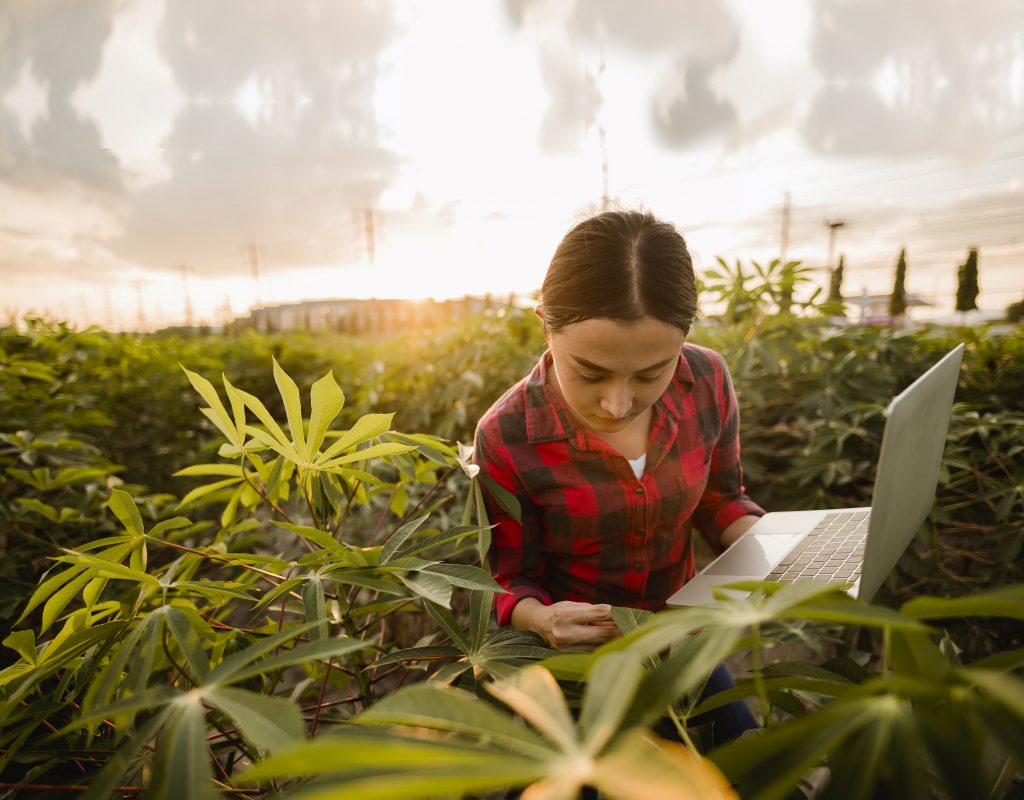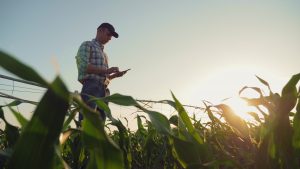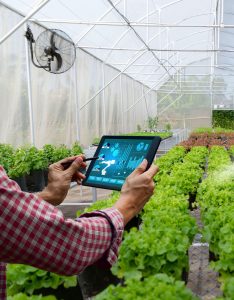
Ambra Raggi, Policy Officer at World Farmers’ Organisation[1]
Farmers are called to feed the world while immense pressures weigh on them: a growing world population, the fight against climate change, the urbanization and the loss of agricultural soils are just some of the challenges farmers face. The recent outbreak of COVID-19 adds additional pressure on the farmers’ shoulders with the need to keep on activities under restrictive measures and threatened by the obstacles brought by the pandemic.
 In this context and taking into consideration the broader spectrum of the food systems transformation, which is now one of the highest priorities of the international community, farmers-driven innovation is a key driver to improve production patterns and support farmers in the achievement of sustainability: economic, social and environmental.
In this context and taking into consideration the broader spectrum of the food systems transformation, which is now one of the highest priorities of the international community, farmers-driven innovation is a key driver to improve production patterns and support farmers in the achievement of sustainability: economic, social and environmental.
In this view, the World Farmers’ Organisation, WFO, tirelessly advocates for innovation, based on the farmers-driven approach when it comes to innovating the agricultural sector.
In the framework of the opportunities provided by innovation processes, being them not only technological, digital technologies have tremendous potential to achieve the disruptive change required in agriculture and rural development.
Internet of Things, Artificial Intelligence, Machine Learning and many others have entered the debate around innovation in agriculture with the potential to shape its sustainability in an effective way, helping farmers to adapt to or mitigate the effects of climate change or bringing about a “smarter” use of natural resources, for example.
However, their deployment puts several questions on the table, regarding the affordability and utilisation of those technologies by all farmers and the support needed to ensure that this happens.

With the promise of digitalisation lies the challenge of building a system that position farmers, from the smallest to the large scale farmers, at the centre of the conception and scaling-up of appropriate technologies, to bridge the gap between technologies development and the effective use by farmers.
Farmers of the world represented at WFO have agreed [2] on the fundamental and central role they should play to develop and scale appropriate training, tools, field-testing of practices, instruments and technologies to ensure that these are effectively adopted. Training should be available for the farmers to access relevant information and tools as they get developed along the way. These must include establishing a reinforced dialogue between innovation value chain actors and farmers and their representations.
 The first and fundamental principle must be that a one-size-fits-all approach can’t work with farmers and agriculture. It is equally fundamental to consider how farmers are already innovating themselves and how they are experimenting with their existing resources. Farmers are economic actors, and when it comes to digital technologies, solution developers should demonstrate a return of investment of time and resources for farmers.
The first and fundamental principle must be that a one-size-fits-all approach can’t work with farmers and agriculture. It is equally fundamental to consider how farmers are already innovating themselves and how they are experimenting with their existing resources. Farmers are economic actors, and when it comes to digital technologies, solution developers should demonstrate a return of investment of time and resources for farmers.
We need an ambitious framework for the farmers’ community across the globe: it is about financing their empowerment, their investments and their skills acquisition.
True transformation requires greater ambition, innovation and scaling up to ensure no farmer is left behind.
 Ambra Raggi graduated in 2015 in International Relations at the University of Rome « La Sapienza ». From 2016 she worked for the Confederazione Nazionale Coldiretti (Italian Farmers’ Organisation) ‘s office of representation in Brussels, working on EU Innovation policies and funding for Agriculture; EU and International Trade policies and International Relations for the Organisation. Since October 2019 she is working at the World Farmers’ Organisation (WFO)’s International Secretariat based in Rome as a policy officer in charge of Innovation, Climate change, Livestock and Value Chain policies and projects.
Ambra Raggi graduated in 2015 in International Relations at the University of Rome « La Sapienza ». From 2016 she worked for the Confederazione Nazionale Coldiretti (Italian Farmers’ Organisation) ‘s office of representation in Brussels, working on EU Innovation policies and funding for Agriculture; EU and International Trade policies and International Relations for the Organisation. Since October 2019 she is working at the World Farmers’ Organisation (WFO)’s International Secretariat based in Rome as a policy officer in charge of Innovation, Climate change, Livestock and Value Chain policies and projects.
[1] The World Farmers’ Organisation (WFO) is an association created by the farmers themselves to advocate for their interests body of and for farmers. It currently represents 1.5 billion farmers from all over the world, from smallholders to agribusinesses. Our mission is to ensure that the farmers’ voice is heard and respected at the global stage on some of the most relevant issues that are affecting their present and could also impact their future.
The Our vision of our work is to enhance the economic viability of farming activities to improve the living conditions of farmers, their families and the rural communities they work and live in. Our aim is also to strengthen the contribution of the farming community in tackling the challenges faced by humankind.
[2] WFO Policy on Sustainable Food Systems WFO-Policy-Paper-on-Sustainable-Food-Systems_approved-by-the-WFO-2020-GA_EN.pdf (wfo-oma.org)


